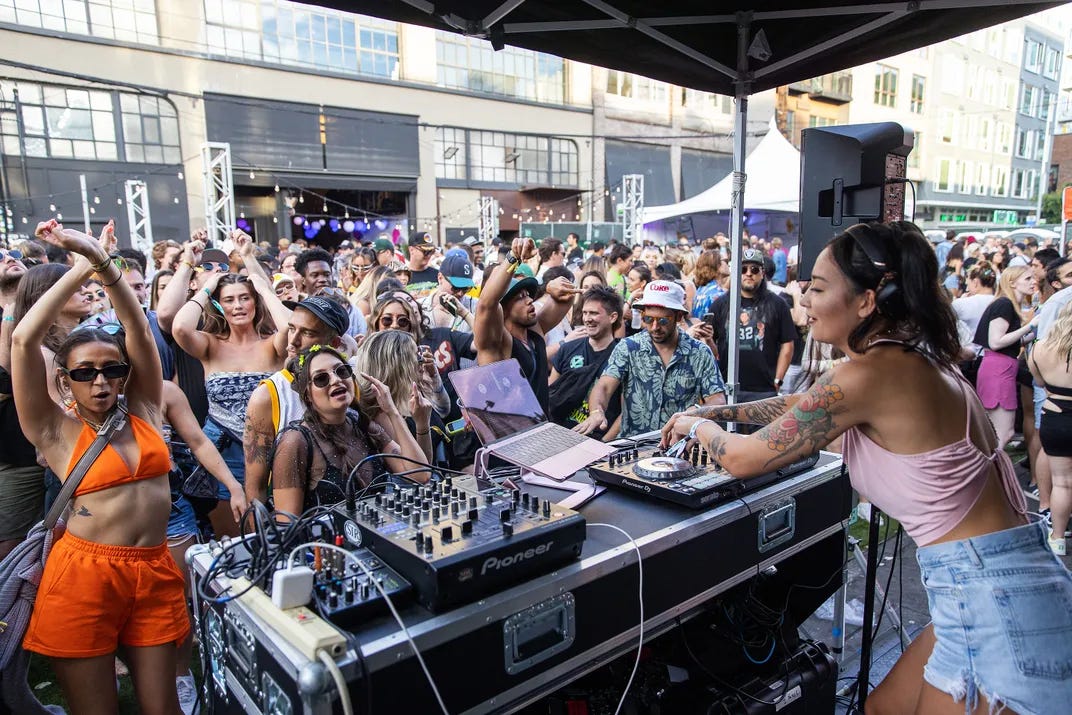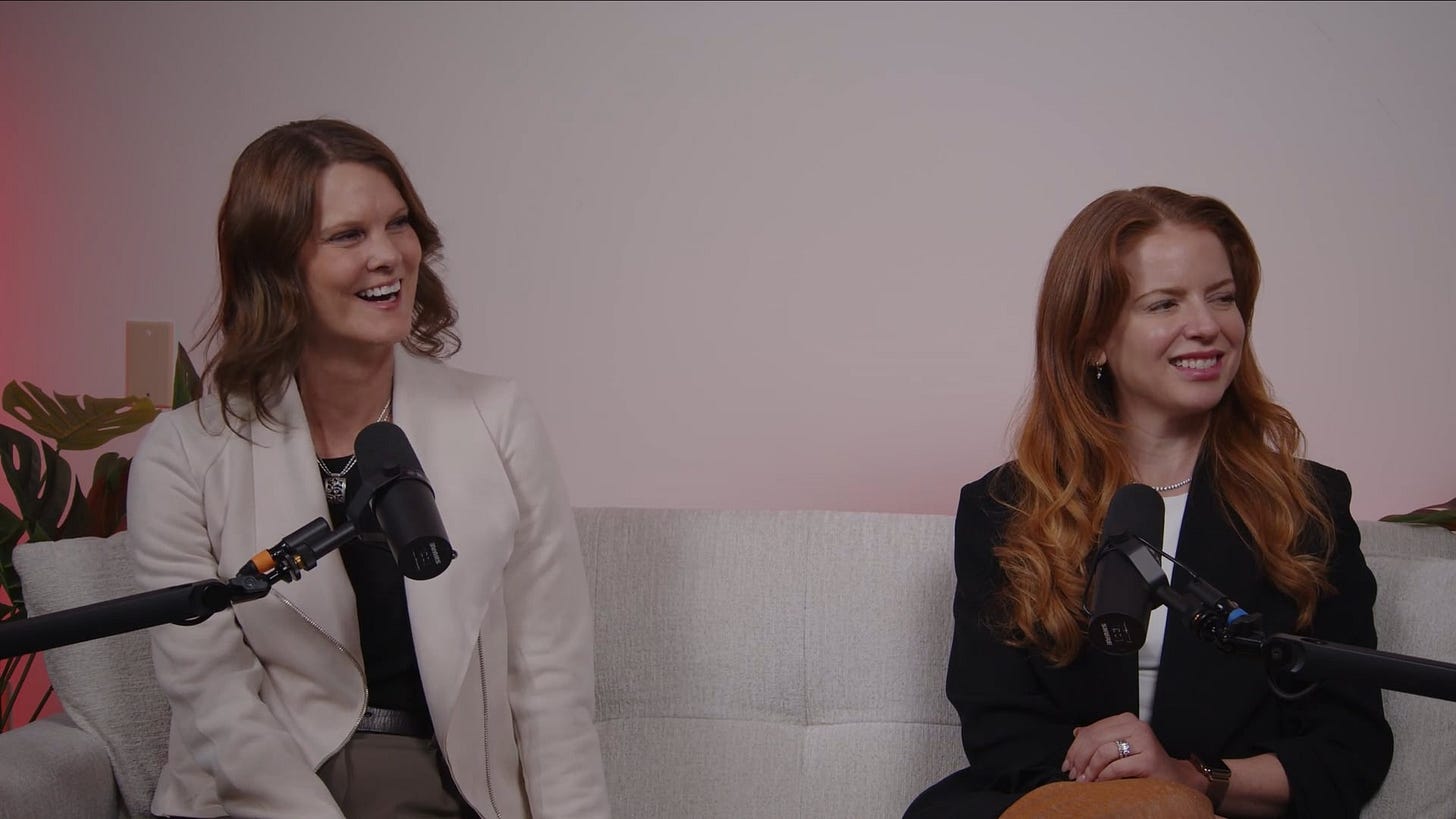This is Culture & Code, a weekly newsletter and podcast about Creativity and Artificial Intelligence. Culture & Code explores innovation across storytelling, technology and audiences to help creative professionals collaborate better with AI and each other.
AI as a Drum Machine Part II: Making a Scene
source: https://www.smithsonianmag.com/smithsonian-institution/how-the-block-party-became-an-urban-phenomenon-180980560/
Critics in the early 80s thought the music coming from first generation drum machines like the Roland TR-808 sounded artificial…strange…“off”.
But in the hands of the right artists, the punchy bass, clicky drums, and tinny high hats did more than launch new music genres. Drum machines and samplers helped launch new music scenes. They did so by changing how musicians and their audiences conceived of what music could be, and how that new sound translated into a unique audience experience.
Today, generative AI is doing a similar thing for visual storytelling. Gen AI doesn’t just change how we make visual media for film, games, social or other formats. Generative AI reshapes how creators and their audiences think what visual storytelling could be, and what new audience experiences are possible.
What Counts as “Film” Is Already Shifting
Until recently, we defined film as a ~90-120min narrative visual story meant for passive consumption in a movie theater or on television. When the making of a cinematic quality film required expensive talent, equipment and distribution to reach an audience, this perception made sense.
But now with generative AI, what constitutes a “film” might be:
A MangaPod: A narrative story with sequential images, animation and rich audio that advances like a comic book.
An AI horror loop: A visual scare sequence that plays on a loop on someone’s Instagram reel.
Anime Fusions: Anime that never existed, that’s voiced and visualized with AI.
A docu-game hybrid: Combining elements of a documentary and a game to tell a story using a game engine, live action, Gen AI and everything in between.
And many more...
To most classic film critics, none of these qualify as cinema. However, growing numbers of people don’t care. They watch. They comment. They remix and share with peers and strangers. Whenever there’s a definitional conflict between a critic and an audience over what does or does not constitute a narrative form or genre, the masses win every time.
It’s about the vibe
When drum machines and samplers transformed music in the '80s and ‘90s, it wasn’t just the sound that changed. The music being created with drum machines and samplers fueled new ways to socialize around a new vibe.
People threw block parties. They went out to clubs. Met friends. Shared recordings. Bought clothes. Hooked up. The social coinage from all those behaviors and more accumulated into a “scene” with names like hip-hop, house, techno, industrial, trap and many more. Along with music, scenes inspire people to come up with signature looks, dance moves, and other ways to belong.
AI is starting to do a similar thing now for visual media. It’s not just what kind of films you can make with AI. It’s how AI films and fandoms change who you meet and how you interact.
David Bowie once said art in the 21st century happens at “the grey space in the middle”, a place where the artistic work of any medium is not complete until an audience comes to it, adds their own experience, and thereby evolves it.
Today’s AI storytelling is smack dab in the grey space in the middle. AI creators and their audiences are transforming what feels “done,” what feels “real,” and what gets called a “film.” You don’t need a multimillion $ budget anymore. You need a story that makes people feel something. From there, the value of the AI tools comes from how well they help you surf that feeling and engage with the audience to develop a scene.
Like early drum machine and sampler music was lost on most people except for some funky pioneers, the AI storytelling scene in 2025 is not mainstream. It’s still niche.
But the niches are growing. And sooner than you think, niches will become scenes. Once that happens — and it will — all bets are off.
Debra Aho Williamson and Adrienne Lahens interview at the Seattle AI Film Festival
Debra Aho Williamson (L) and Adrienne Lahens (R)
At the Seattle AI Film Festival, I had a wide ranging conversation with two experts shaping how creators, marketers, and brands navigate the rapidly changing media world—Debra Aho Williamson, founder of Sonata Insights and former lead analyst at eMarketer, and Adrienne Lahens, former TikTok executive and now founder of The Imagination Age newsletter.
Debra brings decades of experience analyzing how consumers adopt new technology—from the rise of social media to today’s generative AI tools—and what that means for marketers. Adrienne, who led global operations for TikTok's creator marketplace and launched TikTok’s generative AI tools, has been at the frontlines of how creators and brands collaborate to break through in the attention economy.
This conversation covers a lot of ground: how audiences are using AI in everyday life, how creators can partner directly with brands, and what both technologists and marketers need to do to keep up with this moment of massive change. Both guests emphasize the critical importance of trust, authenticity, and human creativity in making AI work for people.
Key Quotes
Debra Aho Williamson:
“AI is going to just make everything so much better, faster, and easier—we’ll look back at today’s CGI the way we now look back at early websites.”
“Consumer behavior is changing fast. These AI platforms are becoming media destinations, and brands have to meet audiences where they are.”
Adrienne Lahens:
“It’s not about replacing humans with AI—it’s about scale, variety, and creative possibility.”
“If authenticity is the buzzword for the creator space, then integrity is the buzzword for generative AI.”
Whether you're a creator, marketer, technologist—or just curious about what comes next—this is a conversation that makes the future feel accessible, urgent, and exciting.
Listen to the full interview HERE.
AI Movie Night during Seattle Tech Week July 30
This is an ongoing announcement.
The Seattle AI Film Festival (SAIFF) will host AI Movie Night during Seattle Tech Week on July 30, 2025.
We’ll curate 4 category winning AI short films with comment and presentations from award winning AI creators and technologists about filmmaking as a craft and career under a new paradigm. The audience will be exposed to top rated short films made with AI plus insights and frameworks from the people making them.
What to expect at AI Movie Night:
- 4 World Class AI-powered short films
- Live commentary between films
- Special presentation from a leading creator/studio and creative AI tech company
- Networking at the center of Storytelling & AI
- Launch announcement of the SAIFF 24hr AI Film Challenge in late October 2025
If you’re a creator, a technologist, a strategist, or a fan, you can’t miss this opportunity to see the future and connect to a growing community of creative AI innovators.
Registration opens on June 23. You can check out the full lineup of events at the Seattle Tech Week lu.ma page.







